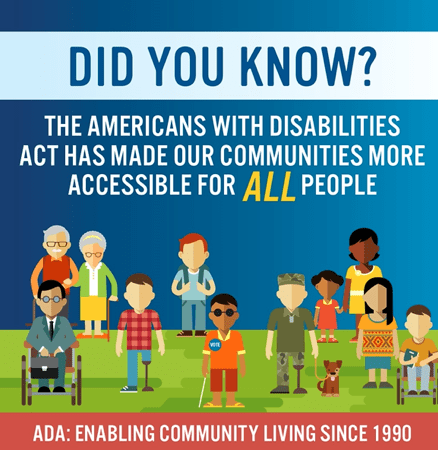Earlier this month, Funimation agreed to settle a discrimination lawsuit out of court.
A lawsuit filed against Funimation Global Group, LLC was recently settled out of court. The suit was filed by Jenisa Angeles, a legally blind person, in January over claims that the company’s website violated the Americans with Disabilities Act. It was filed in the District Court of the Southern District of New York on behalf of “herself and others similarly situated.”

succo via Pixabay, www.pixabay.com
According to the lawsuit, Funimation had failed “to design, construct, maintain, and operate its website to be fully accessible to and independently usable by [Angeles] and other blind or visually-impaired people.” Because of that, the lawsuit argued the website’s design was a “violation of her rights under the Americans with Disabilities Act (ADA).” The suit further stated that Angeles is “a visually impaired and legally blind person, who could not use a computer without the assistance of screen-reading software, and is proficient at using the ‘NonVisual Desktop Access’ screen-reading software.”
In her suit, Angeles said she visited the ‘shop.funimation.com website many times to make purchases, but was “denied a shopping experience similar to that of a sighted individual due to the website’s lack of a variety of features and accommodations, which effectively barred her from being able to determine what specific products were offered for sale.” How so? Well, she argued the “features on the site lacked alt. text and failed to add a label element or title attribute for each field.” On top of that, the “pages on the site contained the same title elements and the site contained broken links.” Due to that, Angeles claimed Funimation took part in “acts of intentional discrimination.”
As part of the suit, Angeles asked for a permanent injunction that would require Funimation to “retain a qualified consultant acceptable to Angeles to assist Funimation to comply with the Web Content Accessibility Guidelines (WCAG 2.1) for its website.” The WCAG is maintained by the World Wide Web Consortium.
What does the ADA say about this type of matter, though? Well, supplementary information on Title III Regulations of the ADA states the following:
“Although the language of the ADA does not explicitly mention the Internet, the Department [of Justice] has taken the position that title III covers access to Web sites of public accommodations. The Department has issued guidance on the ADA as applied to the Web sites of public entities, which includes the availability of standards for Web site accessibility.
An agency (and similarly a public accommodation) with an inaccessible Web site also may meet its legal obligations by providing an accessible alternative for individuals to enjoy its goods or services, such as a staffed telephone information line. However, such an alternative must provide an equal degree of access in terms of hours of operation and range of options and programs available.”
Another section of Title III of the ADA states:
“No individual shall be discriminated against on the basis of disability in the full and equal enjoyment of the goods, services, facilities, privileges, advantages, or accommodations of any place of public accommodation by any person who owns, leases (or leases to), or operates a place of public accommodation.”
Additionally, the suit sought “an injunction to prohibit Funimation from violating the ADA and the N.Y.C. Administrative Code, an injunction for Funimation to make its website in full compliance with the ADA, a declaration from Funimation that it operates its site in a manner that discriminates against the blind and which fails to provide access for persons with disabilities as required by Americans with Disabilities Act.” It also sought compensatory damages and other relief.
Sources:


Join the conversation!